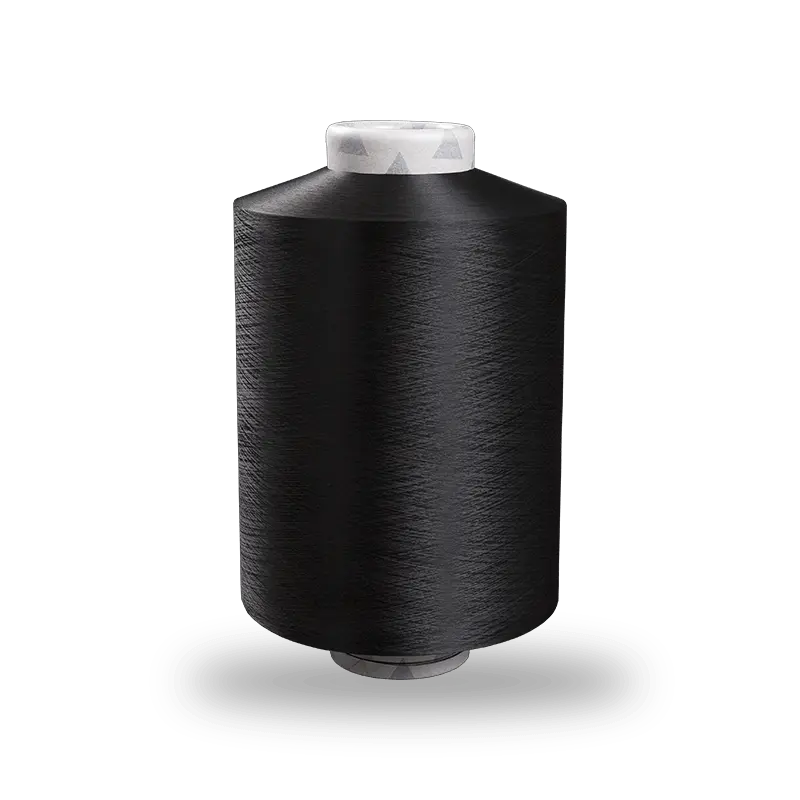Nylon 6 DTY (Draw Textured Yarn) has become a go-to material for crafting high-performance fabrics used in sportswear, industrial textiles, and beyond. What makes Nylon 6 DTY such a versatile choice for these demanding applications is its unique combination of fluffiness, elasticity, and texture, all of which can be tailored to meet specific needs. By adjusting the yarn's properties during production—whether through changes in the intermingling process, denier selection, or machine settings—manufacturers can create fabrics that perform exceptionally well under a variety of conditions, from intense physical activity to challenging industrial environments.
The key to tailoring Nylon 6 DTY lies in understanding the nuances of its production process. At its core, Nylon 6 DTY is derived from Nylon 6 POY (Partially Oriented Yarn), which is subjected to a process of false twisting and stretching. This process not only imparts the yarn with essential characteristics such as excellent fluffiness and resilience but also offers manufacturers the flexibility to customize the yarn’s texture. One of the most significant ways to adjust the properties of Nylon 6 DTY is through intermingling—a technique that involves intertwining the filaments to create varying degrees of cohesion. Depending on the market requirements, yarn can be produced in no-intermingled (NIM), slight-intermingled (SIM), or high-intermingled (HIM) forms. Each of these configurations has a distinct impact on the yarn’s performance in fabric manufacturing. For instance, high-intermingling (HIM) results in a more compact yarn structure, enhancing the fabric’s durability and stability, which is crucial for high-stress applications like industrial textiles and outdoor gear. On the other hand, slight-intermingling (SIM) or no-intermingling (NIM) options might be preferred for applications requiring softer and more elastic fabrics, such as sportswear or yoga pants, where comfort and flexibility are paramount.
Another critical factor in tailoring Nylon 6 DTY to high-performance needs is the denier of the yarn. Denier refers to the thickness of the individual filaments, and it plays a direct role in the weight, durability, and texture of the final fabric. For sportswear and activewear, manufacturers often choose a finer denier, which results in lightweight, breathable fabrics that maintain a high degree of stretch and comfort. This is especially important for fabrics used in yoga wear, athletic uniforms, or gym clothing, where unrestricted movement is essential. On the other hand, industrial textiles, which need to withstand more wear and tear, might require a heavier denier to provide added strength and resistance to abrasion.

The production machinery also plays an integral role in customizing Nylon 6 DTY. The use of advanced Japanese TMT Winder machines and German Barmag Textured Machines ensures precision and consistency in the twisting and texturing process. These machines are finely tuned to produce a yarn with the desired properties, such as uniform stretch, texture, and fluffiness. Manufacturers can adjust settings like tension and temperature to further influence the final yarn characteristics, ensuring that the Nylon 6 DTY can meet the specific requirements of the intended application.
Once produced, Nylon 6 DTY is subjected to rigorous testing to ensure it meets high standards for physical durability, dyeing performance, and appearance quality. Testing is particularly important for fabrics used in high-performance settings, where the yarn’s resilience under stress, its ability to retain color under various conditions, and its overall aesthetic are crucial. Sportswear fabrics, for example, must retain their stretch and shape after repeated washing and exposure to UV light, while industrial textiles must maintain their integrity in harsh environments.
By focusing on these critical aspects of Nylon 6 DTY production—intermingling, denier, machine settings, and rigorous testing—manufacturers can create textiles that not only meet but exceed the expectations of modern consumers. High-performance fabrics made from Nylon 6 DTY offer exceptional qualities like elasticity, strength, moisture-wicking capabilities, and durability, making them ideal for sportswear, activewear, and industrial applications. These fabrics excel in providing comfort, flexibility, and long-lasting performance, whether for yoga wear that demands freedom of movement or industrial textiles that must endure extreme conditions.


 English
English 中文简体
中文简体 Español
Español عربى
عربى










